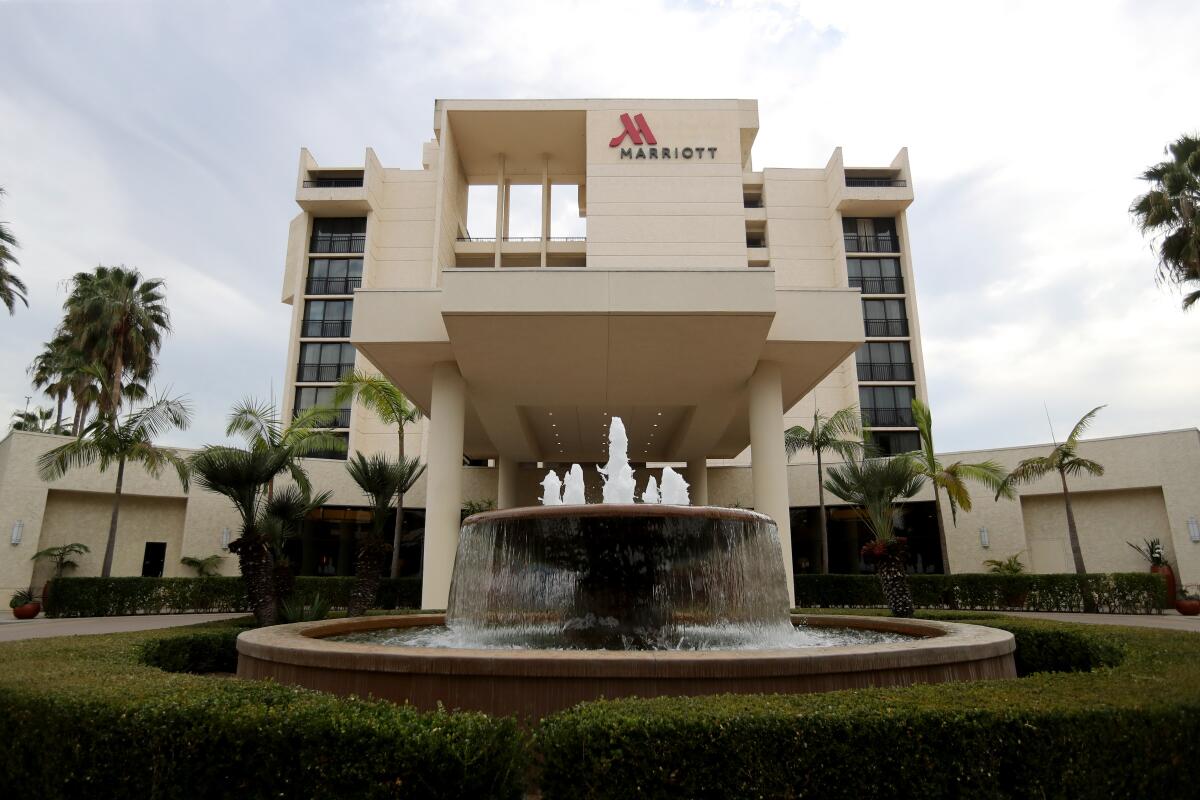Newport Beach rejects appeal, paving the way for resorts to convert some rooms to residential units

- Share via
Newport Beach resort hotels will still be allowed to convert a percentage of their rooms into residential units, following a unanimous decision by the City Council in an appeal of the matter Tuesday night.
The organization Still Protecting Our Newport (SPON) centered its appeal on a council policy implemented in March that aimed to lower barriers for the development of housing in order for the city to reach its mandated goal of zoning for at least 4,834 more housing units.
That policy allows city staff to “develop, modify as necessary and aggressively implement various strategies designed to accelerate housing production consistent with the policy, including encouraging and incentivizing the development of mixed-use hotels,” according to a report prepared for Tuesday’s council meeting.
That includes interpreting ambiguities in the city’s general plan, coastal land use plan and city code to allow hotels and motels to convert some of their approved hotel rooms into residential units.
Following the new policy, community development director Seimone Jurjis issued a determination in April that resort hotels could convert up to 30% of their rooms to residential units providing they stayed within certain parameters.
Attorney Michelle Black, who represents SPON, said the group felt that Jurjis’ determination exceeded his authority and contended that the determination violated the local coastal program and Coastal Act.
SPON first appealed Jurjis’ ruling on May 14 to the Planning Commission, which considered the matter in July and denied the appeal. It was that decision the group was appealing to the City Council on Tuesday.
Black said the organization believes Jurjis’ determination would require an amendment to the city’s general land use element and also trigger the Greenlight Initiative, which requires a citywide vote on any development that causes an increase of more than 100 peak-hour car trips or dwelling units.
“If you were to add this to the general plan update process, we would be happy,” Charles Klobe, president of SPON told the council Tuesday. “We fully support affordable housing and this appeal is only about the process. Since there is no project before you and the draft housing element has been submitted, why not slow this down and incorporate this into the general plan update as suggested by the Coastal Commission staff?”
Other members of the organization Tuesday similarly stressed during public comment before the council that they were concerned about the process.
Other residents said they supported the ruling and what it could mean for the potential of resort hotels throughout Newport Beach.
Councilman Will O’Neill objected to accusations of the city was not following an appropriate process, pointing out that there have been several meetings on the policy and the determination.
“It’s not like this was hidden,” said O’Neill, proceeding to read the council policy’s direct text. “The question before us tonight: is the interpretation consistent with what I read [of the council’s policy]? Yeah, it is. It’s not a close call. To the extent that the accusations are dealing with the general plan and Greenlight, I think the staff report does an admirable job responding completely to that issue ...I’m at a loss…at the idea that we’re now in our fifth meeting talking about this issue and the process hasn’t been followed.”
All the latest on Orange County from Orange County.
Get our free TimesOC newsletter.
You may occasionally receive promotional content from the Daily Pilot.




